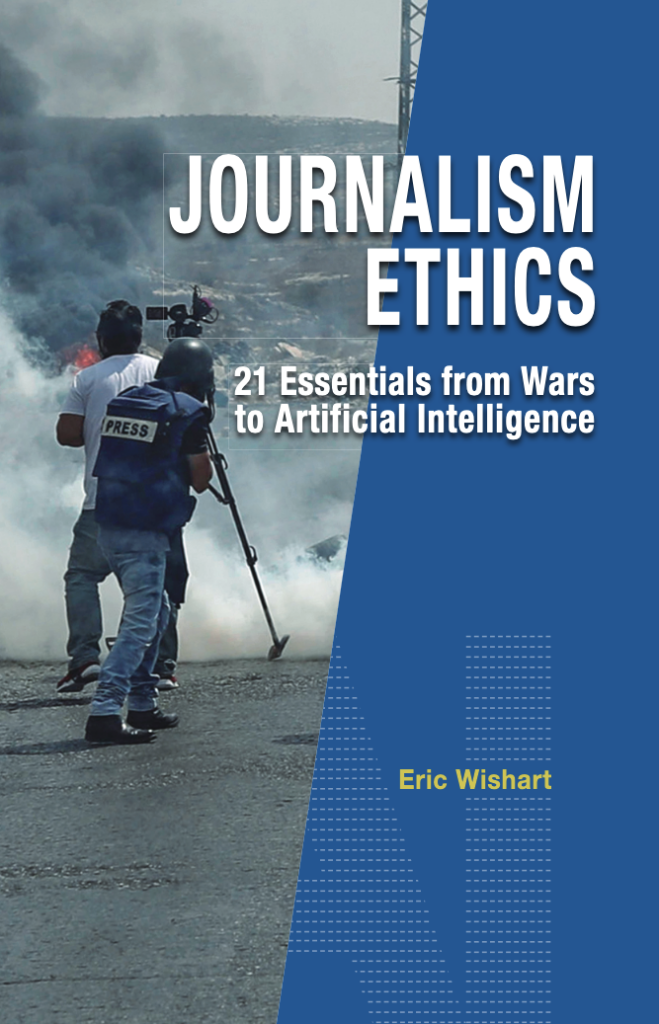Journalism Ethics
21 Essentials from Wars to Artificial Intelligence

This concise and authoritative work offers the latest guidance on journalism ethics for students and media professionals and will help empower news consumers to make informed decisions about the trustworthiness of their sources of information. It offers advice on all aspects of journalism ethics including accuracy and seeking the truth, representation of women, LGBTQ coverage, climate change, mental health, use of images, conflict reporting, elections, and how to use artificial intelligence. The author brings a unique perspective and depth of knowledge to the complex challenges facing journalists and news consumers in this era of fake news, disinformation, and artificial intelligence.
Endorsements:
“A clear, compelling, and comprehensive guide to how journalism, at its best, should work. Students and veterans alike could learn a great deal from it.”
Alan Rusbridger – Editor-in-chief, The Guardian, 1995–2015
“Eric Wishart brings a depth of experience and wisdom to this succinct, easy-to-read examination of the ethics and culture of journalism. As a refresher for professionals or a primer for students and information consumers who want to understand the principles of responsible, reliable journalism, this compact work is rich with valuable lessons and guidance.”
Fred Brown – Ethics Committee Chair, Society of Professional Journalists
“This is an essential book for those carving out a career in journalism and seeking to build solid foundations from strong ethics. It is an excellent guide for student journalists and those seeking a refresher in the principles that steer this noble profession. It is the perfect work for anyone interested in how accurate, trustworthy, truth-seeking, fact-driven journalism is created.”
Leona O’Neill – Head of Undergraduate Journalism, Ulster University
“This book should be on every reporter’s desk. Journalism ethics made easy and practical. Eric Wishart put his decades of experience, as a reporter, editor-in-chief, and standards and ethics editor, into these chapters on the many ethical dilemmas a journalist can come across. As a handbook and a quick reference work, the book is a true treasure trove.”
Margo Smit – President, The Organization of News Ombuds and Standards Editors
“Teachers and students of journalism will find this book useful as a textbook on journalistic ethics. News organisations can use it as a handy reference for newsroom practice, while members of the public interested in debating the do’s and don’ts of journalism can use it as a starting point for discussion.”
C. K. Lau – Former Head and Professor, Department of Journalism, Hong Kong Baptist University, and Former Editor-in-Chief, South China Morning Post
“Eric is a champion in news organisational risk management and a huge advocate for journalists’ safety. He has seen so many untrained and ill-prepared journalist lives lost due to war, natural disasters and direct targeting. News organisations and journalists have an ethical responsibility to try to minimise the risks involved in the reporting and production of news.”
Tony Loughran – Global Risk Specialist, author of Zero Risk: Keeping Others Safe in a Dangerous World